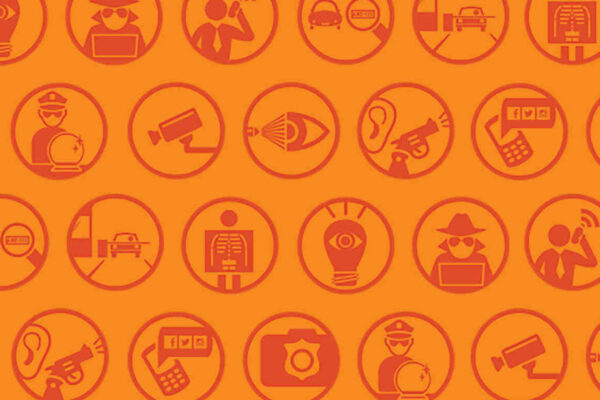Working group recommends first-ever Privacy Advisory Committee
A City of Boston working group established by the 2021 surveillance technology oversight ordinance today released recommendations to increase transparency, accountability, and engagement regarding the City’s use of technology that can implicate personal privacy.
“Technological innovation has too often outpaced our basic rights, leaving local governments in the dust,” said Kade Crockford, Technology for Liberty program director at the ACLU of Massachusetts and working group member. “Since passing the surveillance oversight ordinance last year, the City’s working group has been identifying and addressing gaps in process, policy, and procedure to better serve Boston residents and communities. Our recommendations will, if accepted and implemented, help to ensure Boston’s adoption and use of new technologies protect privacy, follow best practices, incorporate community input, and promote transparency.”
The working group’s recommendations include:
- Forming a first-of-its-kind Privacy Advisory Committee, which would serve as an expert body for City employees across departments to consult on privacy aspects of both day-to-day work and special projects;
- Embedding an ethos of data privacy for City employees by offering clear and relevant training on privacy principles, beginning in the employee onboarding stage and proceeding through their tenure;
- Partnering with trusted, community-based organizations for ongoing listening sessions, event planning, and community-led engagement around City surveillance and data collection practices.
The working group includes appointed representatives and contributing members from the ACLU of Massachusetts, Student Immigrant Movement, the City of Boston’s Department of Innovation and Technology, the Mayor’s Office, and the Mayor's Office of New Urban Mechanics. Meetings were publicly noticed on Boston.gov and open to the public, which enabled interested residents to attend.
"The creative, collaborative environment in the Working Group has led to recommendations that uphold the ideals of the city we strive to be in the future while acknowledging the realities of the city we have been in the past,” said Yo Deshpande, Technologist for the Public Realm at the Mayor's Office of New Urban Mechanics. “In the Mayor’s Office of New Urban Mechanics, we talk about Boston becoming not a ‘smart city,’ but a city that’s smarter—and beyond that, more caring. The working group recommendations lay the foundation for a culture shift toward just that: toward a government that’s more transparent, more accountable to and engaged with the public, and more just."
The City of Boston passed an ordinance requiring community control over police surveillance in October 2021, joining over 20 other municipalities nationwide—including Cambridge, Lawrence, and Somerville in Massachusetts—with similar surveillance oversight laws. The Boston ordinance, which empowers local communities to influence surveillance and information-sharing decisions, went into effect in August 2022.
In addition to establishing the new working group, the surveillance oversight ordinance institutionalizes a transparent, democratic process ensuring that Boston police cannot acquire new surveillance technologies without community buy-in. It mandates that police surveillance technologies cannot be funded, acquired, or used without express City Council approval. Pursuant to the ordinance, all existing police surveillance technologies must likewise be approved by the City Council for ongoing use.
In compliance with the portion of the ordinance related to police surveillance technology, the Wu administration in August disclosed materials about existing surveillance technologies and database systems. These materials are currently before the City Council’s Committee on Public Safety and Criminal Justice, which has tentatively scheduled a hearing to discuss them on November 4, 2022.
For more information about the ACLU of Massachusetts, go to: https://awp.ddev.site:8444
Stay Informed
Sign up to be the first to hear about how to take action.
By completing this form, I agree to receive occasional emails per the terms of the ACLU’s privacy statement.
By completing this form, I agree to receive occasional emails per the terms of the ACLU’s privacy statement.

